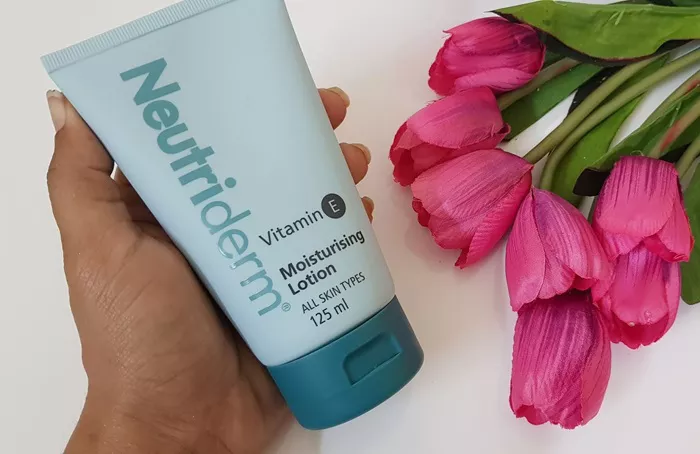Scars can be an unfortunate part of life, resulting from injuries, surgeries, acne, or even certain skin conditions. For individuals with dark skin tones, scars may sometimes appear more pronounced due to the increased melanin production during the healing process. This can lead to post-inflammatory hyperpigmentation, where the scar becomes darker than the surrounding skin. Therefore, it is essential to choose a scar treatment that not only helps in the healing process but also addresses the unique needs of dark skin, helping to fade the scar while maintaining even skin tone.
In this article, we will explore the most suitable scar creams for dark skin, focusing on ingredients that work effectively to reduce scar visibility, improve skin texture, and promote healing without causing discoloration. We will delve into the science behind how scar creams work, the factors to consider when selecting the right product, and review some of the top choices available for dark skin. This guide will help you make an informed decision and achieve smoother, more even-toned skin.
Understanding Scars and How They Form on Dark Skin
To better understand how to treat scars on dark skin, it’s important to know how scars form and why they sometimes look more noticeable on darker skin tones.
The Healing Process and Scarring
When the skin is injured, the body initiates a healing process that involves several stages: inflammation, tissue formation, and remodeling. During this process, collagen and elastin are produced to close the wound and rebuild the damaged tissue. However, as the skin heals, a scar can form as a result of excess collagen production or uneven distribution. Scarring can vary depending on the severity of the injury, the individual’s skin type, and even their genetic predisposition.
On dark skin, the healing process can sometimes result in hyperpigmentation, where the skin around the scar becomes darker than the surrounding tissue. This is due to the skin producing more melanin in response to the injury or inflammation. While this type of pigmentation typically fades over time, it can leave behind noticeable marks that may require special care and treatment.
Dark Skin and Scarring
Dark skin tones are more prone to developing post-inflammatory hyperpigmentation (PIH), which is when the skin produces excess melanin in response to injury, acne, or inflammation. While lighter skin tones might be more susceptible to scarring due to less melanin, darker skin tones have an advantage in terms of wound healing. However, the hyperpigmentation that often follows a scar can make these marks appear more prominent. As a result, it’s crucial to use scar creams that not only help heal the scar tissue but also help lighten dark spots and even out the skin tone.
Key Ingredients in Scar Creams for Dark Skin
When selecting a scar cream for dark skin, it’s essential to look for ingredients that target both the healing process and hyperpigmentation. The right product will help to fade scars while promoting smooth, even skin texture. Here are some key ingredients to look for when choosing a scar cream:
Vitamin C
Vitamin C is a powerful antioxidant that helps lighten hyperpigmentation by inhibiting the production of melanin. It promotes collagen production, which helps improve skin texture and elasticity. When used in scar creams, Vitamin C can help fade dark scars and improve the appearance of the skin by brightening the surrounding area.
Hyaluronic Acid
Hyaluronic acid is known for its ability to attract moisture, which is vital in the healing process. It helps keep the skin hydrated and promotes skin regeneration, making it particularly beneficial for scar treatment. By maintaining optimal skin moisture levels, hyaluronic acid can improve the appearance of scars, making them less noticeable over time.
Retinoids (Vitamin A Derivatives)
Retinoids, such as retinol and tretinoin, are widely used in skincare for their ability to accelerate skin cell turnover. They work by increasing the production of collagen and encouraging the shedding of dead skin cells. This can lead to smoother skin and reduced appearance of scars, especially in the case of post-inflammatory hyperpigmentation. However, retinoids should be used cautiously on dark skin, as they can sometimes cause irritation or increase sensitivity to the sun, which could worsen hyperpigmentation.
Centella Asiatica (CICA)
Centella Asiatica, commonly known as CICA, is a plant extract that has been used for centuries for its healing and anti-inflammatory properties. It promotes the regeneration of skin cells, helps strengthen the skin barrier, and reduces the appearance of scars by improving collagen production. This ingredient is particularly suitable for sensitive skin, making it an excellent option for those with dark skin who want to avoid irritation.
Silicone
Silicone is one of the most effective ingredients for scar treatment, as it helps to lock in moisture and create a protective barrier over the scar tissue. This barrier allows the skin to heal faster and reduces the formation of excessive collagen, which can lead to raised scars (keloids). Silicone-based scar gels and sheets are widely used in scar management and have been shown to be effective in improving the appearance of scars, including those on dark skin.
Niacinamide
Niacinamide (Vitamin B3) is another excellent ingredient for treating scars, particularly post-inflammatory hyperpigmentation. It helps brighten dark spots and evens out the skin tone by inhibiting melanin production. Additionally, niacinamide has anti-inflammatory properties, which can help reduce redness and swelling associated with scars.
Choosing the Right Scar Cream for Dark Skin
Now that we understand the ingredients that are most beneficial for treating scars on dark skin, it’s important to know how to choose the best product for your specific needs. Here are some factors to consider when selecting a scar cream:
Skin Type and Sensitivity
Different scar creams may be better suited for different skin types. For instance, individuals with oily or acne-prone skin may want to look for lightweight, oil-free formulas that won’t clog pores. On the other hand, those with dry or sensitive skin might benefit from scar creams that provide extra hydration and soothing ingredients like hyaluronic acid or Centella Asiatica.
Scar Type
The type of scar you have—whether it’s a keloid, hypertrophic scar, or acne scar—will influence the effectiveness of certain scar creams. For example, silicone-based products are particularly effective for preventing and treating keloids or raised scars. For hyperpigmentation, creams with Vitamin C, niacinamide, or retinoids may be more appropriate.
SPF Protection
If you are using a scar cream that helps lighten dark spots or promote new skin growth, it’s essential to protect your skin from the sun. UV exposure can worsen hyperpigmentation, making scars darker and harder to treat. Look for a scar cream with built-in SPF, or apply a separate sunscreen as part of your daily skincare routine.
Top Scar Creams for Dark Skin
Several products on the market are formulated specifically for dark skin and are known to be effective in treating scars while reducing hyperpigmentation. Here are some of the top scar creams that are ideal for dark skin:
Mederma Advanced Scar Gel
Mederma is one of the most popular scar treatment brands and is known for its effectiveness in improving the appearance of scars. The Mederma Advanced Scar Gel contains allantoin and cepalin, which help to soothe the skin and reduce scar formation. It is lightweight, non-greasy, and suitable for all skin types, including dark skin. While it works primarily on scar texture, it may also help with some hyperpigmentation over time.
Bio-Oil Skincare Oil
Bio-Oil is a well-known product that has been used for years to treat scars and stretch marks. It contains a combination of plant extracts, including Vitamin A and E, and has anti-inflammatory properties that promote skin healing. Bio-Oil helps to improve skin tone, texture, and elasticity, making it effective in treating scars, particularly those with dark pigmentation. It is suitable for all skin types, including dark skin, and is known for its ability to reduce the appearance of hyperpigmentation.
ScarAway Silicone Scar Sheets
ScarAway offers silicone-based products that have been clinically proven to reduce the appearance of scars, including keloids and hypertrophic scars. The ScarAway Silicone Scar Sheets create a protective barrier over the scar tissue and help to lock in moisture, preventing the formation of raised scars. These sheets are effective for both new and old scars and can be worn discreetly throughout the day.
Ambi Skincare Fade Cream
Ambi Skincare Fade Cream is specifically formulated to address hyperpigmentation and uneven skin tone. It contains 2% hydroquinone, which is a well-known skin-lightening agent that inhibits melanin production. Additionally, Ambi Fade Cream is enriched with Vitamin E, which promotes skin healing and nourishment. This product is effective in fading dark spots and reducing the appearance of scars, making it an excellent choice for those dealing with post-inflammatory hyperpigmentation.
Conclusion
Choosing the right scar cream for dark skin involves understanding the unique needs of your skin, particularly when it comes to hyperpigmentation. The most effective scar creams for dark skin should contain ingredients like Vitamin C, hyaluronic acid, retinoids, Centella Asiatica, and niacinamide to promote healing, reduce scarring, and even out skin tone. By considering your skin type, the type of scar you’re treating, and additional factors like sun protection, you can select the best scar cream for your needs.
With consistent use of the right scar cream, you can significantly improve the appearance of scars, reduce discoloration, and restore your skin’s natural radiance. Whether you’re treating acne scars, surgical scars, or other types of skin damage, the key to successful scar treatment lies in selecting a product that addresses both healing and hyperpigmentation, allowing you to achieve smoother, more even-toned skin.
Related Topics






























